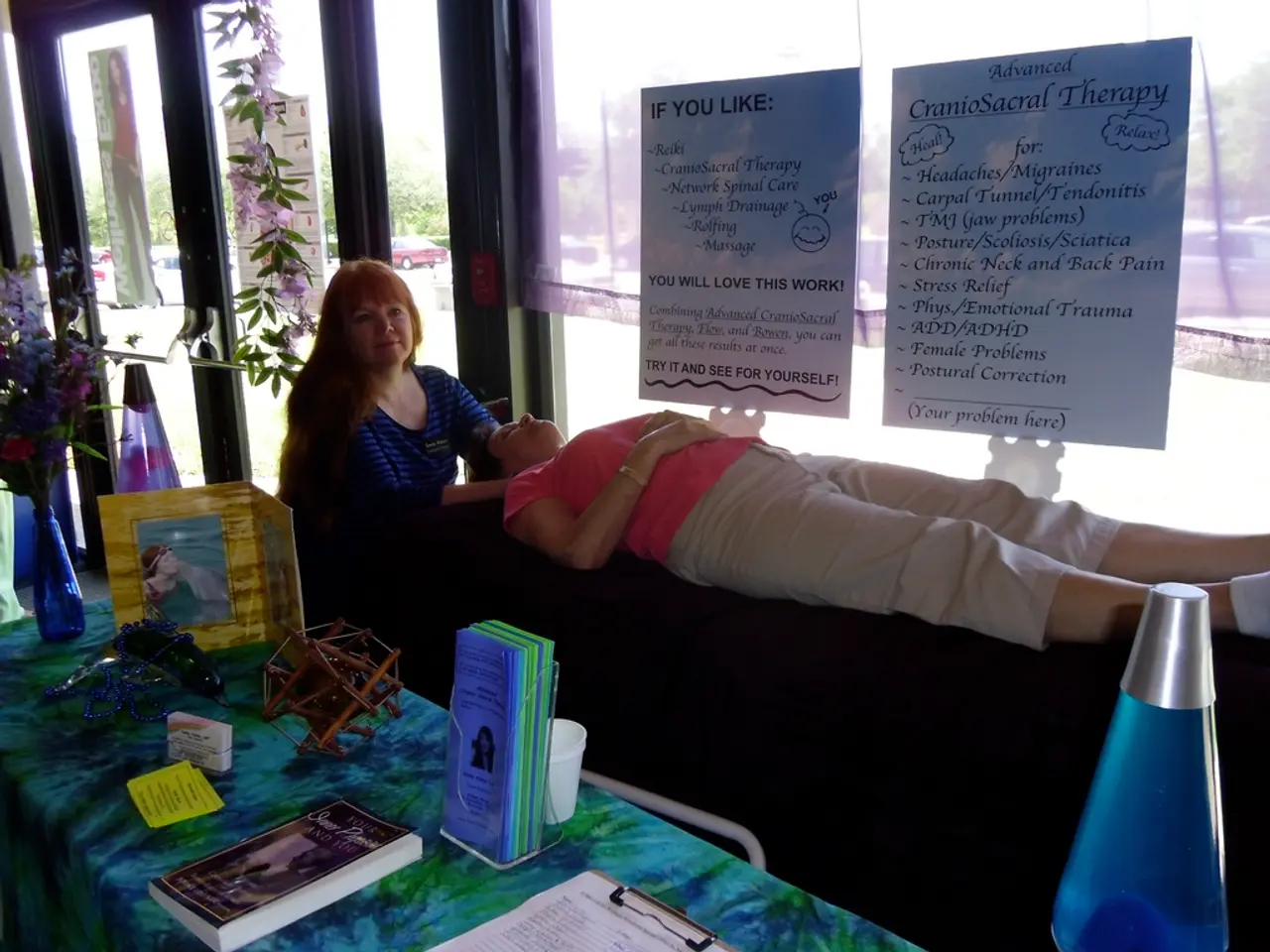Aging misconceptions: Is degeneration an unavoidable fate?
In the pursuit of a healthier and more fulfilling life in the golden years, it's essential to understand the role of expectations and lifestyle choices. Recent evidence-based findings suggest that these factors significantly influence physical health and aging.
Aging does not inevitably lead to dementia. Cognitive decline can be mitigated by maintaining mental and physical activity throughout life, especially in middle age and beyond. Challenging the brain continuously helps delay conditions like Alzheimer's disease[1]. Loneliness is not an inevitable part of aging; social connections play a crucial role in seniors' well-being, and avoiding isolation through community engagement or technology promotes healthier aging[1].
Physical activity remains beneficial at all ages, countering the myth that exercising stops being useful beyond a certain point. Exercise supports physical health and helps prevent many age-related chronic conditions[1]. The World Health Organization defines healthy aging as the preservation of functional ability enabling well-being, emphasizing prevention, lifestyle choices, and managing chronic diseases holistically[4]. Lifestyle factors such as diet, exercise, and social engagement are key to maintaining both physical and cognitive function with age[4].
Older adults have more difficulty getting to sleep, and their sleep tends to be more fragmented, which might help explain why some older adults need to nap during the day. However, regular exercise and a healthy diet can help combat these issues, contributing to longer, healthier lives[2].
Regular exercise can reduce the risk of developing Alzheimer's disease and other forms of dementia[3]. Keeping active, eating right, having an active social life, and maintaining a positive outlook could help slow down the physical deterioration associated with older age[5].
Moreover, a more positive self-perception of aging is associated with a lower risk of all-cause mortality, suggesting that this association is partly mediated by healthy lifestyle behaviors and social participation[1]. For instance, older adults who undertook heavy resistance training for a year were better able to maintain muscle strength than their peers in other groups, even four years after the initial study period[5].
As the world's population ages, it's crucial to emphasize the importance of positive expectations and proactive lifestyle choices for healthier aging and better physical health outcomes[6]. According to the World Health Organization, the proportion of the world's population over 60 years will double from about 11% to 22% between 2000 and 2050[6]. By making informed decisions about our health and adopting healthy habits, we can ensure a more active, engaged, and fulfilling later life.
References:
[1] Healthy Aging Resources: Busting Myths and Embracing Evidence-Based Practices. (n.d.). Retrieved from https://www.helpguide.org/articles/healthy-aging/healthy-aging-resources.htm
[2] Brisk walking could extend life by 1.8 years, study finds. (2018, December 18). Retrieved from https://www.bbc.com/news/health-46567603
[3] Exercise 'cuts Alzheimer's risk'. (2014, October 14). Retrieved from https://www.bbc.com/news/health-29574887
[4] World Health Organization. (2020). Healthy aging. Retrieved from https://www.who.int/news-room/fact-sheets/detail/healthy-aging
[5] Resistance training slows loss of muscle strength in older adults. (2018, November 20). Retrieved from https://www.sciencedaily.com/releases/2018/11/181120183442.htm
[6] Aging population: World's elderly to double by 2050. (2015, April 28). Retrieved from https://www.bbc.com/news/world-32438766
- Adopting an active lifestyle, combining physical exercise, appropriate diet, and engaging social activities, can help reduce the risk of developing dementia, such as Alzheimer's disease, and other chronic conditions associated with aging.
- The World Health Organization emphasizes that the preservation of functional ability and managing chronic diseases holistically are essential for healthy aging, underlining the importance of preventing age-related disabilities and deterioration.
- It's not inevitable that older adults suffer from sleep disturbances or need daytime naps; regular exercise and maintaining a healthy diet can contribute to longer, healthier lives and better sleep.
- Exercise can also help slow down cognitive decline related to aging, indicating that it could potentially be a tool for delaying mental health issues like dementia.
- In addition to physical benefits, maintaining a positive outlook on aging may lead to lower risk of all-cause mortality, highlighting the importance of mental health in healthy aging.
- The world's population is aging rapidly, and it's predicted that the proportion of people over 60 years will double between 2000 and 2050. This shift points to an increased emphasis on evidence-based practices and proactive lifestyle choices aimed at improving health and wellness in the golden years.
- A more active lifestyle can potentially mitigate age-related difficulties, such as osteoporosis and bone fragility, by maintaining functional ability and muscle strength.
- The field of science continues to uncover the benefits of a healthy lifestyle in the context of aging, suggesting that it may be wise for individuals to focus on health-and-wellness practices to ensure a more active, fulfilling, and engaging later life.
- Aging should not be perceived as an obstacle to sexual or mental health; supporting overall health and wellness, including sexual-health and mental-health aspects, is vital for seniors to lead a balanced, fulfilling life with proper care and attention.




